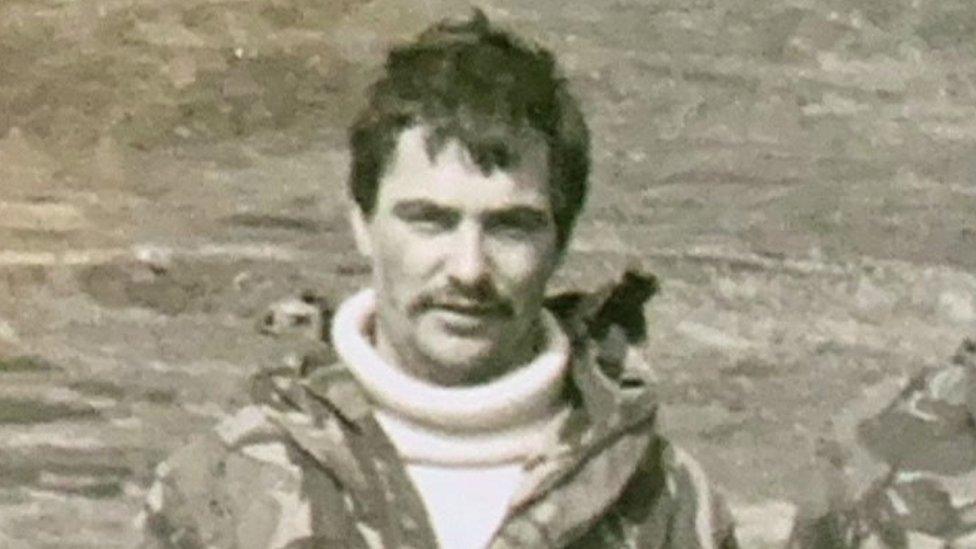Falkland Islands: Loss echoes across Argentina 40 years on
- Published
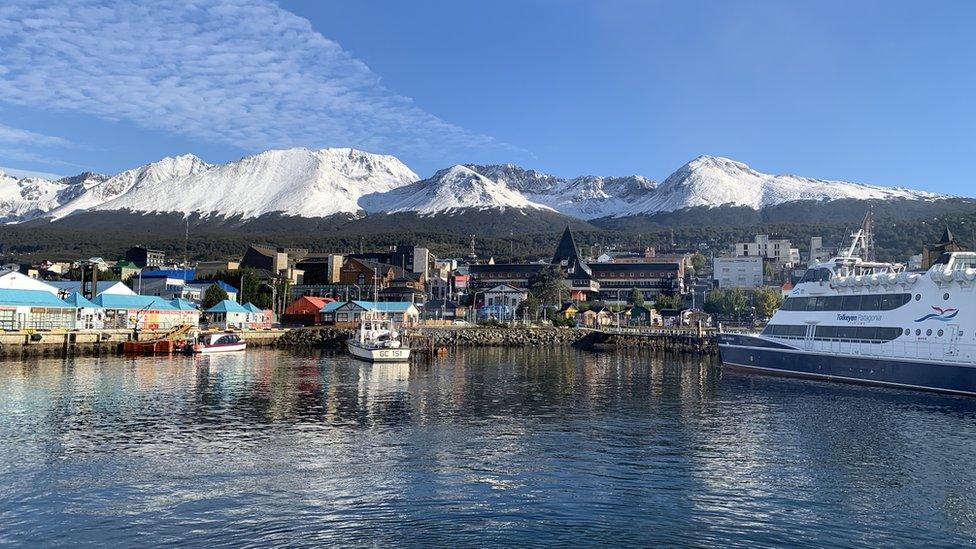
A number of Argentinian troops set off for the Falklands from Ushuaia
The snow-capped Patagonian mountains give off an air of serenity that is at odds with the bitter wind that can whip up in a matter of minutes in this part of the world.
Ushuaia, the southern-most city in the world sits at the bottom of South America, on the archipelago of Tierra del Fuego which is split between Argentina and its neighbour Chile. It is often referred to as the end of the world, but Argentinians like to say it's also the beginning of everything.
Indeed, it was from Ushuaia that many soldiers left to fight 40 years ago, hoping to turn the page on history and claim the Falkland Islands - or the Malvinas - from the British.
And it was from Ushuaia that the cruiser General Belgrano set sail, only to be torpedoed by the British, on 2 May 1982, killing more than 300 Argentinians.
The war lasted just over two months and killed nearly 1,000 soldiers - more than 600 of whom were Argentinian.
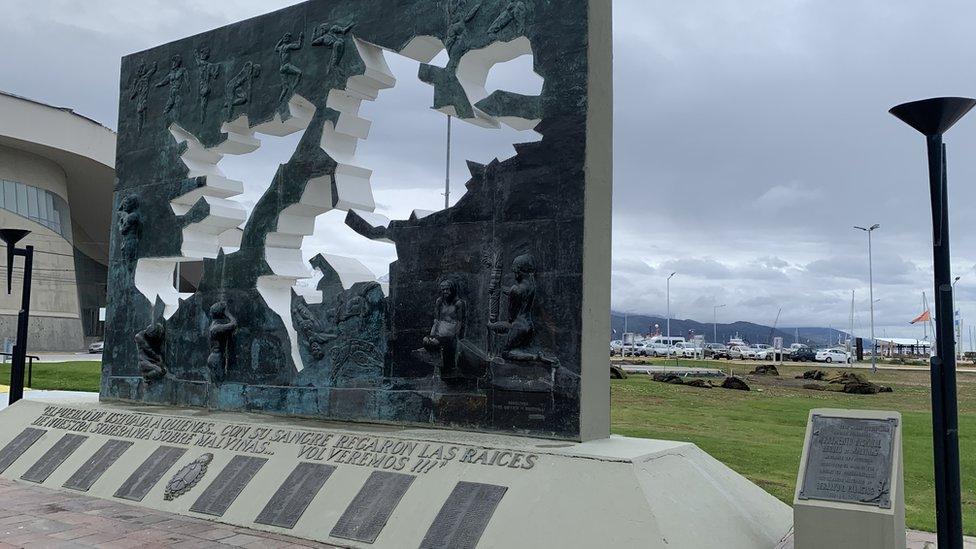
In Ushuaia, a memorial pays tribute to Argentinian soldiers who died during the war
Argentina and the UK have disagreed over the ownership of the islands for two centuries. Argentina claims the Malvinas are theirs because it inherited the islands from the Spanish crown in the 1800s and because of their proximity to Argentina. The UK bases its claims on long-standing administration of the islands and on the principle of self-determination of the islanders, who in 2013 overwhelmingly said they wanted to remain British.
While the two countries talked about reconciliation in the past, everything changed in 1982. Argentina was led into war by military dictator General Leopoldo Galtieri. His popularity was waning and he knew that winning the islands back from Britain would also win over the Argentinians. But he didn't expect defeat.
The conflict drove a wedge through relations between the UK and Argentina. And now more than ever, Ushuaia feels very much the end of the world - with new beginnings less likely than ever.
Ushuaia has another moniker: Argentina's capital of the Malvinas. There are references to the islands everywhere, but everyone here feels their absence.
"It's in our DNA that the Malvinas are Argentinian, it's like a football shirt," says veteran Daniel Guzman who lost 12 friends in 1982 - their names inscribed on the walls of the memorial in the centre of Ushuaia. It was a period that marks him to this day. "War though is a huge step back both in terms of the bilateral relationship and the human one. When we lost the war, we lost the human touch too."
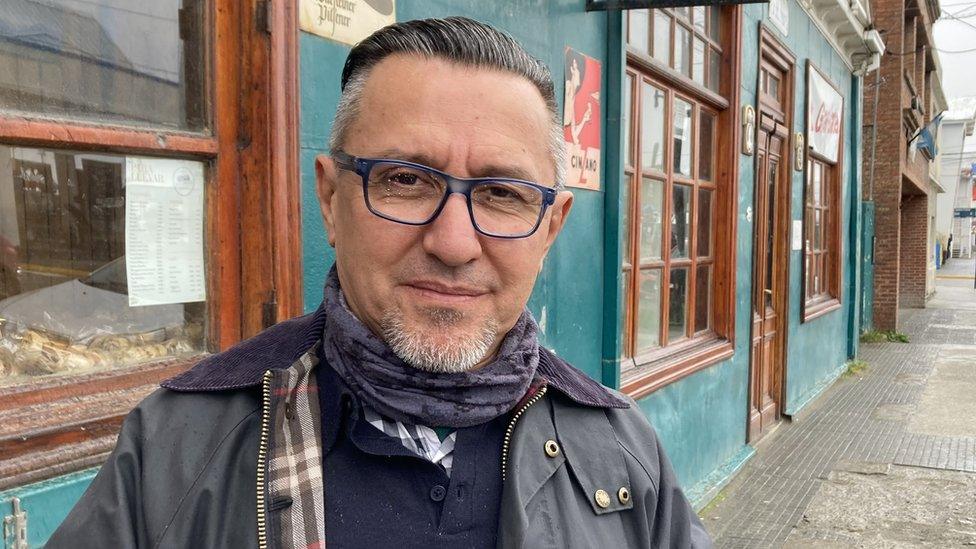
Daniel Guzman says he lost 12 friends in 1982 - their names are on the memorial in the city
A couple of hours drive away is Rio Grande - the city from which Argentina's air fleet took off. At Antártida Argentina (Argentine Antarctic) school, students are preparing a model of the memorial for the anniversary. The younger generation have no memory of what happened but the history that's been passed down from their parents makes the anniversaries very significant.
"It's like we are there but we aren't, with the Malvinas" says 16-year-old Magali Vaccari. "We know what the flora and fauna is like, what the buildings are like, but at the same time we don't because we can't visit."
From a young age, the Malvinas/Falkands are part of the curriculum - and talk of modern-day colonialism a part of peoples' lives.
There's even a book given to primary school children which in English translates as Pipino the Penguin, the Monster and the Malvinas. It tells the story of a blue monster arriving on the islands in a pirate ship with British flags and driving off the animals there. Despite Pipino's best attempts, the monster remains in the cave by the end of the book.
Many in Argentina won't give up driving the monster away.
"In the 21st Century, the English must be ashamed of themselves for having a colony," Argentina's President, Alberto Fernandez, told the BBC in an interview. "It's disgusting to think that, disgusting. It's stolen land. They are usurped lands and oppressed people."
And what of the fact that the UK is no longer the colonial power that it once was?
"I don't see a decline in the UK's colonial power - doesn't the Rock of Gibraltar make you ashamed?' he replied. "It's on the Spanish coast and a few metres away there's a huge rock and you think that's English? It's shameful to say so."
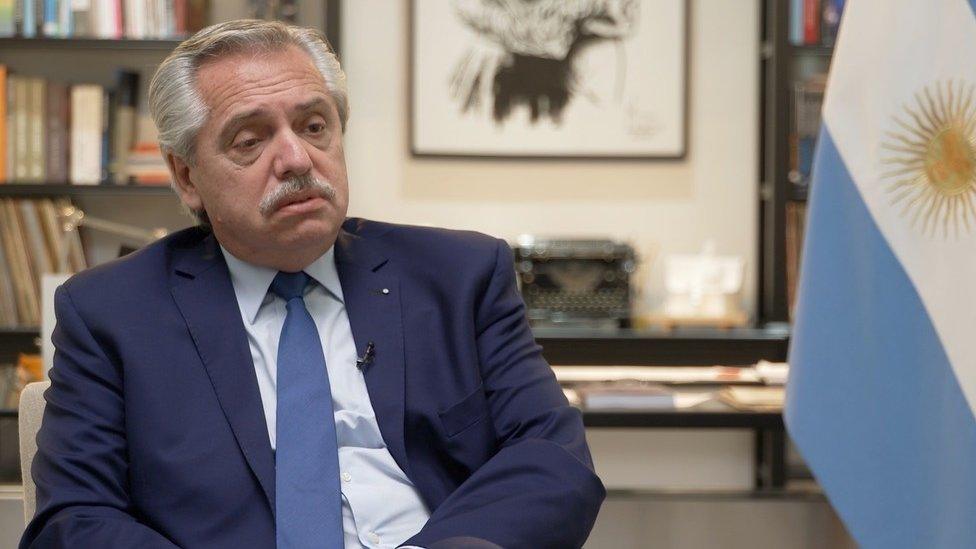
Argentina's president described the Falkland Islands as stolen land and its residents as oppressed people
"I don't think the UK has lost its colonial desire and you should feel just as ashamed when you say that some islands 15,000 miles away from English soil belong to England."
While veteran Daniel supports the Argentine claim to the islands - as do more than 80% of his fellow countrymen according to a recent survey - he believes the fight to win back the islands has now become political, and that the government has lost its way.
"Argentina needs to talk less about the war and more about what we need to further the diplomatic route," he says. "If you keep worshipping that military ambition without talking about the things that we need to talk about, now the country is a democracy, we can't spend another 40 years talking about the last 40 years."
Daniel says the economic crisis faced by Argentina doesn't help.
"It's hard for the islanders to want to associate themselves with the Argentines - nobody with any sense would want to be part of a country with 52% inflation."
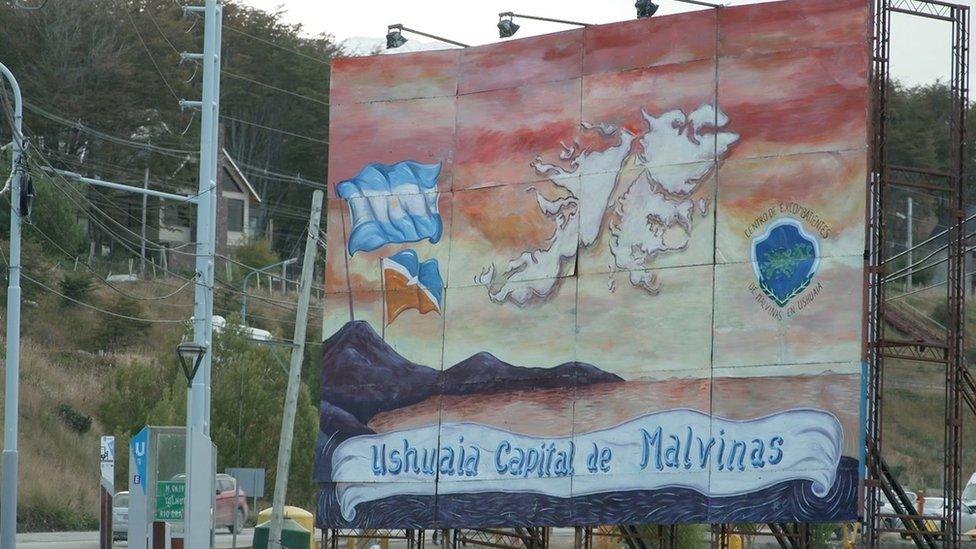
A sense of loss and hopelessness is still felt in the city
But the Malvinas remains Argentina's number one foreign policy issue.
"Sometimes we feel the British authorities keep treating Argentina as if we were still a non-democratic government," said Guillermo Carmonas, the Malvinas Minister. He singles out Boris Johnson's Christmas address to the islanders in which he said the UK remained committed to protecting them, remembering what happened when Argentina surrendered in 1982.
"It put us in a position of belligerence - one that we are not in."
There's no doubt Argentinians agree the war should never have happened - young men, with little training, were sent off to fight in bitterly cold temperatures with little equipment and protection. And many realise that the war set back any possibility of negotiation.
That sense of loss - of hopelessness really - is echoed across the country but felt most keenly in Ushuaia.
The opera singer who survived the sinking of the Belgrano
The city sits on the Beagle Channel, named after the British research ship that Charles Darwin sailed on. There are reminders of British influence everywhere. Before the war, these waters were busier with trade between the islands and Argentina. But now the Malvinas or Falklands feel a world away.
"We really feel the absence of the Malvinas," coastguard Capt Mariano Maneglia says. "We hope we can get the islands back one day."
The history of the islands has been shaped by so many factors: foreign powers, local ties and of course war. The dispute between the two countries makes you question how you define a nation, through land and people. But more than that, this debate also challenges who has the power in the world - what effect colonialism had - and for so many still has.
Related topics
- Published2 May 2022
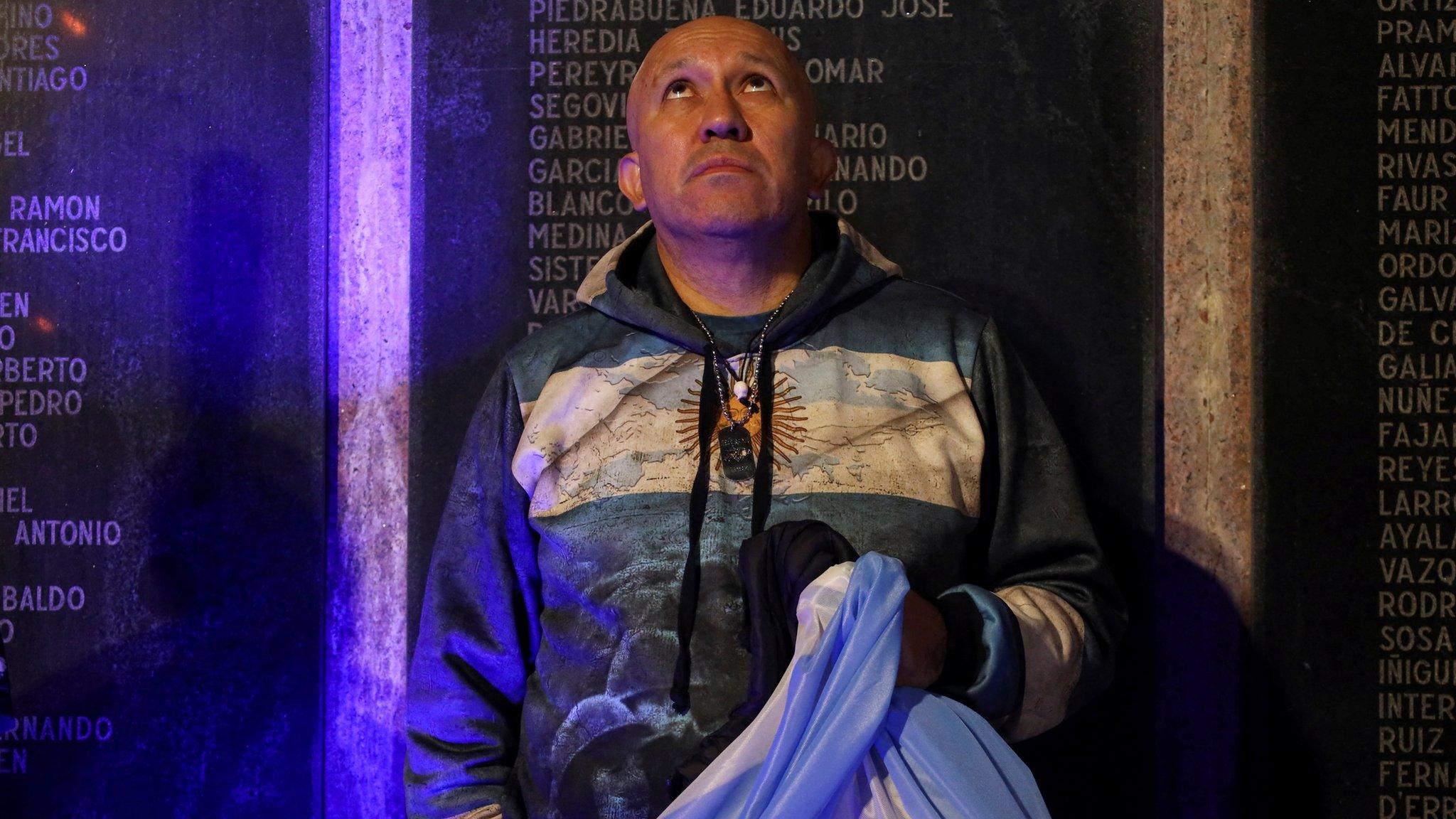
- Published2 April 2022
